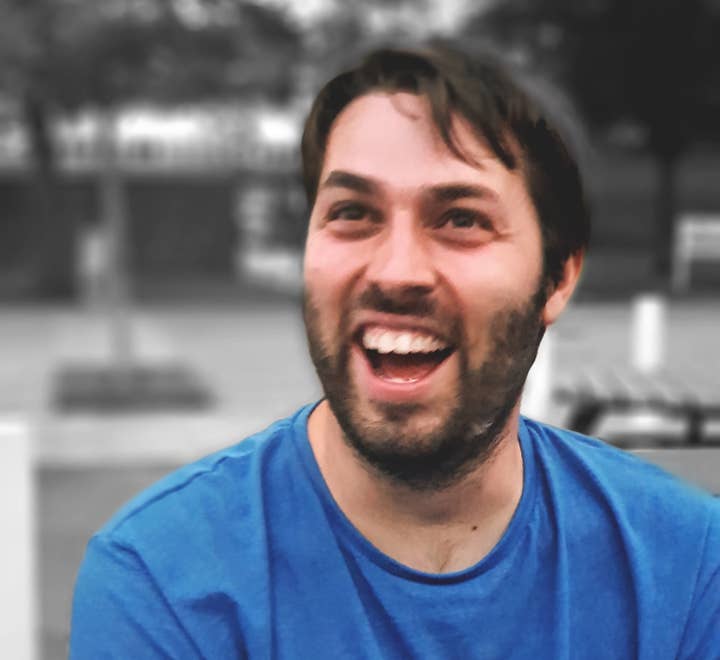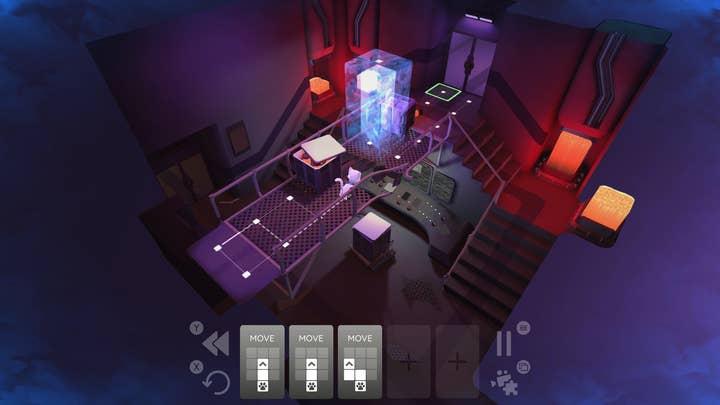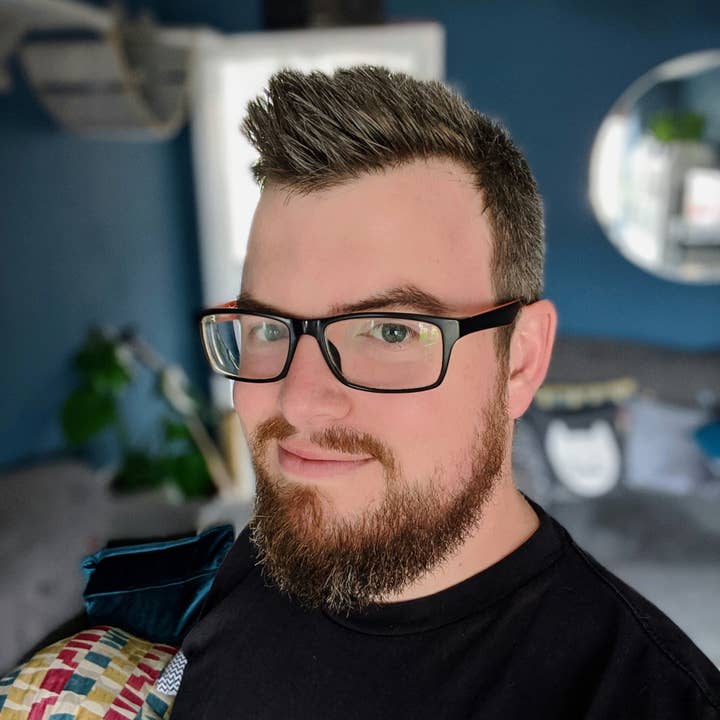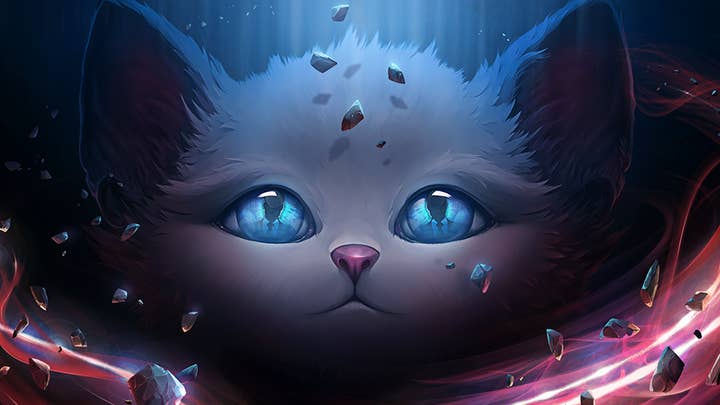Radical Forge's journey from Unity plugins to Bright Paw and beyond
CEO Bruce Slater and COO Tom Didymus discuss outsourcing work, and becoming a powerhouse in the north
It doesn't take long to see where UK indie studio Radical Forge gets its name and vibe from.
With its laid-back, people-first culture, initiatives that let staff indulge in hobbies, and the company name slapped in blood-red graffiti font across the back of skate decks as company merch, it's hard to describe the atmosphere as anything other than radical, in a sort of '90s Tony Hawk way.
The studio is best known as an outsourcing firm, taking on contract work for developers around the world. It also released its debut game Bright Paw in 2020 and is en route to launching more of its own original titles.
Having just celebrated its fifth birthday, Radical Forge is poised to keep expanding as it continues to work on its next unannounced project, as well as providing more opportunities for those who don't want to move to expensive hubs like London to get into games.

Studio CEO and founder Bruce Slater tells GamesIndustry.biz that Radical Forge was essentially born out of him not wanting to go and work at another studio. He set up shop in 2016 with Freddie Babord, now chief technical officer, with the two of them initially creating Unity tools. Shortly after the release of level design tool Blockout in 2017, director Red Freeman and senior artist James Montague joined the team.
"It's really hard to describe, but the studio just naturally snowballed from there," Slater says. "The first two years of the studio were pretty much the most chaotic time of my life."
By 2019, the studio had grown to seven people and had a full team dedicated to making its debut, Bright Paw. Radical Forge COO Tom Didymus tells us that it was entirely self-funded by reinvesting money from contract work back into the game.
Radical Forge took on around 22 other projects to facilitate Bright Paw's development and release. This included titles for Zenimax, Double Eleven, Coatsink and Rebellion, to name a few. Outsourcing work wasn't just a means to an end though; Radical Forge has enjoyed the learning experience from other companies, Didymus tells us.
"We worked with Rebellion to make seasonal content for Zombie Army, and [that] was the first time we'd put a fairly sizable team together to build all of that," he says. "They taught us a lot, we learned a lot and built some fantastic content, but I don't think we want to [do] zombie content again for a while. Everyone wanted a break from that, especially with how the world is right now."
Like a lot of places, 2020 saw Radical Forge engage in high-speed expansion during the COVID-19 pandemic, growing from seven to 28 people in less than six months. The studio wasn't just managing its rapid expansion during that time, but also gearing up to launch Bright Paw in September 2020.

The title was a huge learning experience for Radical Forge because it allowed the team to establish its own production processes for each stage of development, something that hopping onto an external project doesn't really allow, according to Didymus.
"You need to actually build and test something to see where the issues are in order to push the business to be able to make its own games, and we knew we wouldn't get there just doing other people's stuff," he says. "Plus, it was a great creative outlet for the whole studio."
Two years later, the headcount at the company stands at around 63, with staff working remotely from around the UK as well as from Radical Forge's Middlesborough hub.
"We grew really rapidly and then calmed down a bit, but it's always good to course correct after you've done a period of growth, and make sure the culture is correct," Didymus says. "There were a few people that we hired that we didn't technically need at that point, but we were like, 'Actually, you're gonna be useful to us later.'

"We've got really good staff retention because of it too. We hardly lost anyone, and one of the people that did leave actually came back. That's really validating for us, it feels like we have a studio that people are still happy with."
He adds that the studio was quite lucky because when the pandemic fully hit, Radical Forge didn't have systems that needed altering like many other companies. It was able to adapt to remote work and the subsequent hybrid model as it expanded.
"It was a very different world suddenly and we were quite lucky because we were right at the start of our growth journey and hadn't put in a lot of systems yet," Didymus explains. "So every decision we had to make was 'this needs to be accessed remotely,' and making sure everyone can work from wherever they need to. It's not a problem for us now because we're set up in the right way, and it means we can hire people from anywhere."
The studio is proud of its hybrid offering, but it's also enthusiastic about its roots in the North East of England. Middlesbrough is home to a handful of studios, and Radical Forge is part of a movement to provide opportunities for those in the area, which wasn't always an option.
Slater is also the founder of Game Bridge, an industry networking event hosted in Middlesborough, which is now heading into its tenth year.
"Game Bridge was born from the ashes of the fact that nothing was here," Slater says. "Coatsink moved to Sunderland, Double Eleven had grown loads, and there's a bunch of other independent studios that have gone elsewhere or been absorbed by companies and things like that. I also lived in London for about two years as a kid and I vividly remember being like, 'This is a place I never want to live [in]'."
Didymus adds that the studio is now finding people based in the south of England that are wanting to relocate, not just because the area is more affordable, but because they want to be near to the office.
"During lockdown, we didn't have to think about relocation because you couldn't, and this is the first time we've had to do it," he says. "People are thinking about buying houses up here, that's something they've not even considered they could do before. We've had to double the office space that we have up here just because so many people want to work from it."

There's a core message at the heart of how Radical Forge operates, and it's about looking after its people. When work on Rebellion's Zombie Army had wrapped up, the studio asked the team what it wanted to do next. While it put remote work first, staff were still coming up to the office in droves. Slater and Didymus are extremely proud of the culture they've built, and it's one that they believe starts from the very top.
For a start, Slater says that approachability in C-level staff is a must-have when leading a studio
"We have to remember that we have no idea what it's like to be our employees"Tom Didymus
"Your job as a CEO isn't just about looking after the company, it's about looking after the people that do that too," he says. "If me or Tom aren't approachable, staff can't tell us about problems and we can't fix them. We look after our people first, then our culture, then worry about the money stuff after."
Didymus adds: "We have to remember that we have no idea what it's like to be our employees, and not make presumptions based on how it is for us."
Another interesting benefit Radical Forge has is First Friday, where staff can spend the first Friday of each month doing something to further an outside hobby or interest, or work on their own personal projects. Slater laughs and says Didymus just uses it to play video games because it's the only time he has to play them.
"I do, and I encourage others to do the same," Didymus says. "It's madness that I don't get time to play games, that's the job, we have to be current and know what's going on."
As Radical Forge moves ahead, Slater and Didymus reflect on the growth spurt and offer advice to studios in similar positions to theirs, either looking to grow or branch out into their own original games.
"You're never going to get the recognition you deserve or that the game deserves if people can't differentiate from one thing to another"Bruce Slater
"In the chaotic times, the truth is that the company was the only thing we had that was stable, it was the normal thing to do and be a part of," Slater says.
"The games we're working on at the moment, we spend a lot of time analysing the market, it's a decision based around data and not just gut feel. A lot of indie developers will just make whatever they want to make, and that's amazing, but you're never going to get the recognition you deserve or that the game deserves if people can't differentiate from one thing to another."
Didymus takes a more pragmatic approach and highlights the importance of finding the right management, as well as being honest about your own skills as a founder or developer.
"There aren't that many COOs out there, and if you can't find people that have experience with running companies, there are other options," he says. "Investment is a route that can give you all of the connections and advice you need if you're willing to part with some of your company to the right people.
"It means you can also do an assessment of your own skills and go, 'Well, okay, you're great at this side of the business, let's find someone to handle the other parts'.
"We realised pretty early on we needed some help with what Bruce's vision was leading us to do. Having someone that you can ask questions, especially if it's someone that has done that thing many times over, is invaluable. I mean, they put a price on it, but [when] you've got a really clear vision of what you're building, it's worth it."
